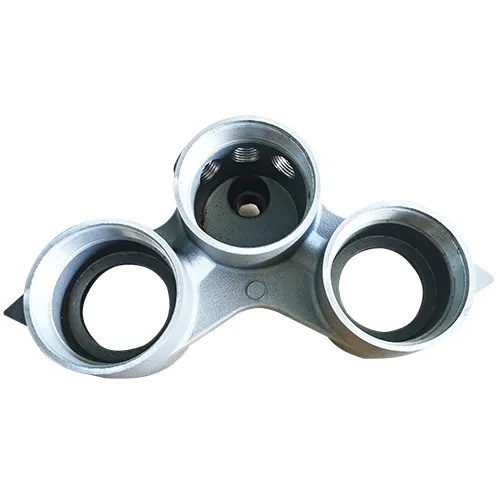Mobile:+86-311-808-126-83
Email:info@ydcastings.com
English
High-Performance Water Impellers for Efficient Fluid Management
The Importance of Water Impellers in Modern Engineering
Water impellers play a crucial role in various engineering applications, particularly in the fields of hydraulics and fluid dynamics. Designed to convert rotational energy into kinetic energy, water impellers are essential components in machines that move fluids. From pumps and turbines to marine propulsion systems, the efficiency and performance of these systems significantly depend on the quality and design of their impellers.
Understanding Water Impellers
An impeller is a rotating component, typically found in centrifugal pumps and other fluid machinery, that increases the velocity of a fluid through mechanical action. In water impellers, the primary function is to draw water into the pump or turbine and accelerate it out, thereby generating flow. The design of an impeller greatly influences how effectively it can manipulate fluid dynamics.
Types of Water Impellers
There are several types of water impellers, each engineered for specific applications
1. Centrifugal Impellers These are the most common type used in standard water pumps. They work by utilizing centrifugal force to propel water outwards from the impeller's center. Centrifugal impellers are known for their ability to handle large volumes of water efficiently. 2. Mixed Flow Impellers Combining elements of both axial and centrifugal designs, mixed flow impellers provide a balance between pressure and flow rate. They are often used in situations where conditions change frequently, and adaptability is crucial.
3. Axial Flow Impellers These impellers move fluid linearly along the axis of the impeller. They are typically employed in applications where high flow rates are necessary, such as in irrigation systems and cooling towers.
water impeller

Advancements in Impeller Technology
With the growing demand for efficiency and eco-friendliness in engineering, recent advances in water impeller design have focused on optimizing fluid mechanics to reduce energy consumption. Computational fluid dynamics (CFD) plays a pivotal role in the modern design process, allowing engineers to simulate and analyze how different shapes and materials affect flow characteristics.
For instance, the development of 3D-printed impellers made from lightweight yet durable materials enables more complex geometries that traditional manufacturing processes could not achieve. These innovations not only enhance performance but also contribute to cost savings in material use and energy requirements.
Applications of Water Impellers
Water impellers are utilized across various sectors. In municipal water supply systems, they optimize the movement of water from reservoirs to treatment facilities. In the agricultural sector, pumps with specialized impellers ensure efficient irrigation, ultimately leading to better crop yields. Furthermore, in the energy sector, water impellers are critical components of hydroelectric turbines, which convert the energy of flowing water into electricity.
Conclusion
The significance of water impellers in engineering cannot be overstated. As technology progresses and the demand for sustainable practices increases, the evolution of impeller designs will continue to shape the efficiency and effectiveness of fluid management systems. Understanding the intricacies of water impellers not only aids in the selection of the right type for specific applications but also highlights the engineering marvels that enable our modern way of life. As we pursue further advancements, the ongoing innovation in this field will undoubtedly lead to even more efficient and environmentally friendly solutions in the future.











